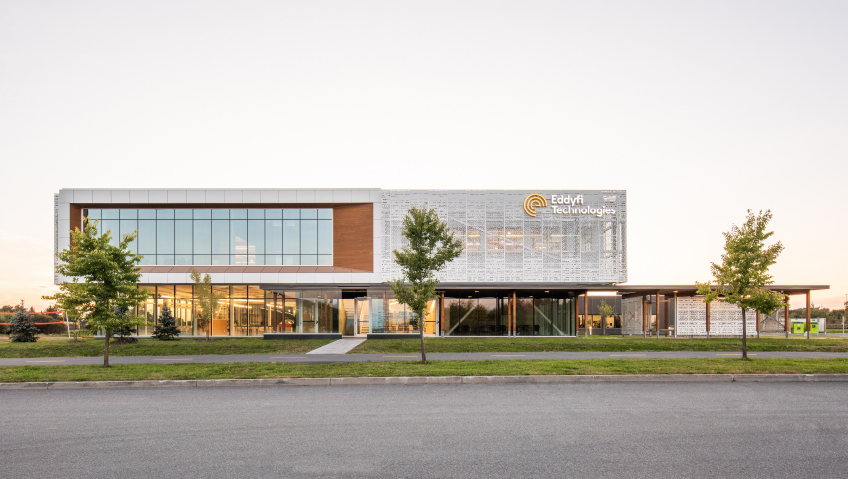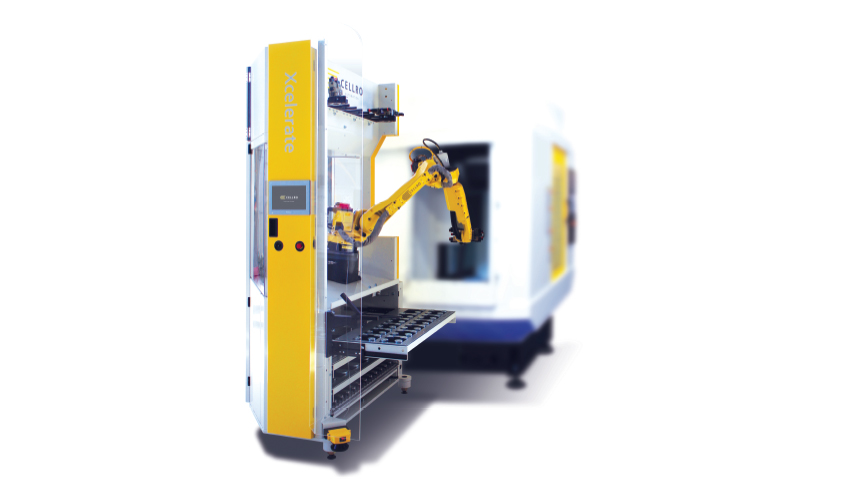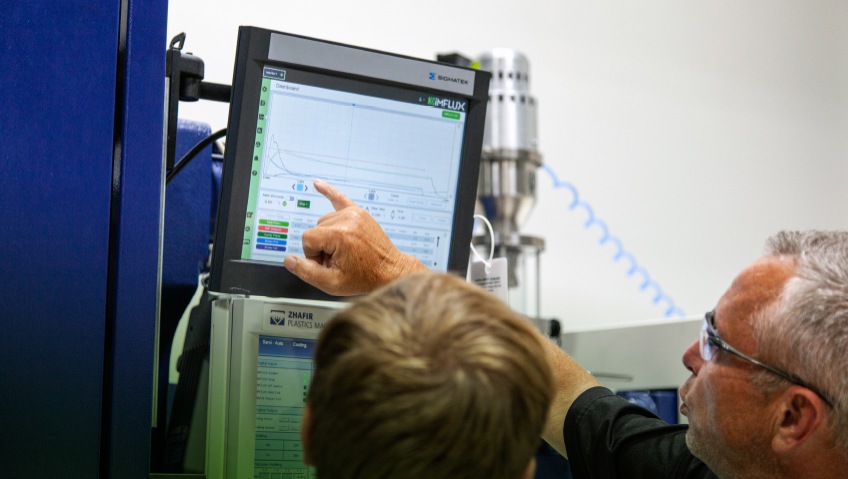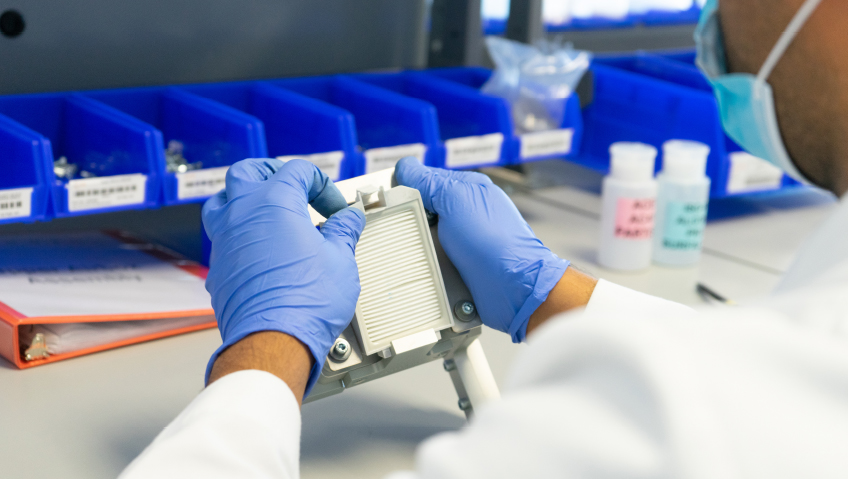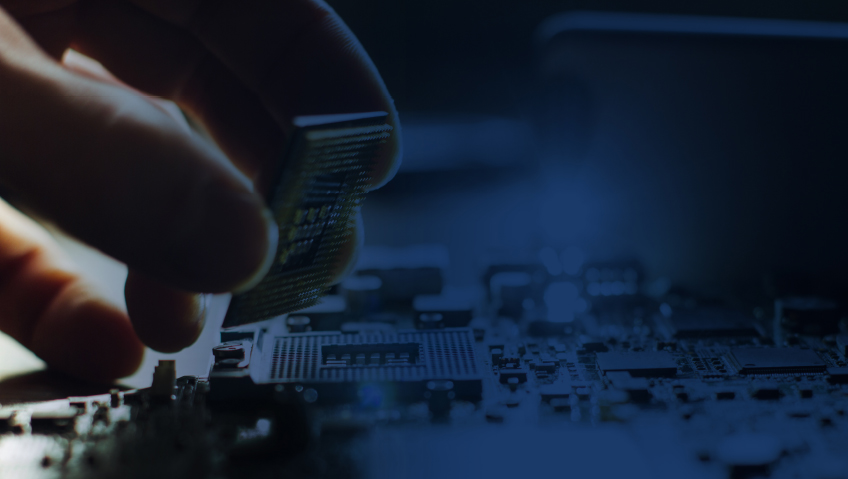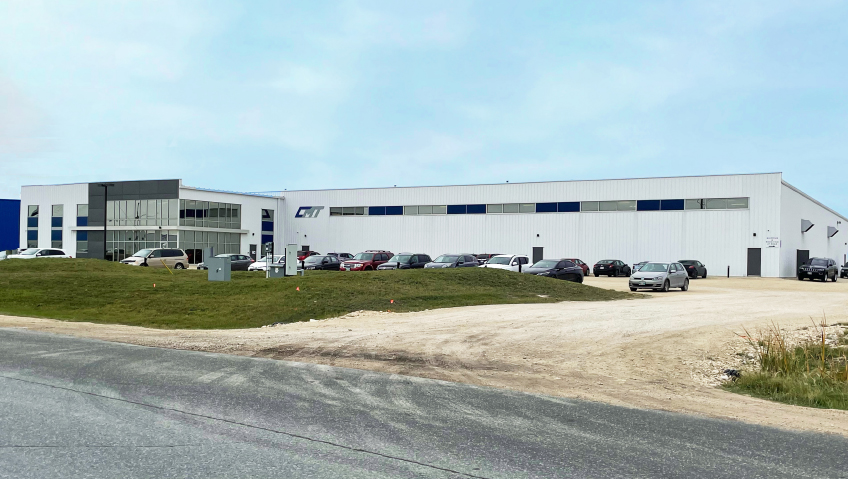Discovering outstanding efficiency is always a delight, especially when it comes to taking care of big-ticket assets. Eddyfi Technologies provides the technology needed to monitor and maintain peak performance for critical infrastructure around the world because losing money, risking lives, and harming the environment is not acceptable.
Asset management is diverse and complex and so is the technology needed to assess the wellbeing of super-sized infrastructure, but Eddyfi Technologies is ready to develop and build the sophisticated inspection equipment used to monitor the performance of critical construction and equipment across 110 countries.
“Eddyfi Technologies offers non-destructive testing (NDT) inspection technologies to the planet. We help asset owners, original equipment manufacturers (OEMs), and service companies to enhance the productivity around their assets and to protect the environment and the communities around it,” says Veronique Chayer, Director of Marketing.
Headquartered in Quebec City, the company started in 2009 with a focus on eddy current arrays (ECA) that allow larger areas to be scanned faster, making manual scanning sufficient in most cases and mitigating the need for complex control systems. The technology also enables inspections and imaging on very complex components.
Today, its offerings include advanced phased array ultrasonic testing. This technology uses ultrasound inside highly accurate probes to electronically scan even more complex parts than many years ago. It also has other types of electromagnetic technologies, such as instruments, sensors, software, and robotic solutions to the aerospace, energy, mining, power generation, and transportation industries, plus several others. Infrastructure projects that benefit from its work range from nuclear power plants and hydroelectric dams to windmills, pipelines, and bridges.
As non-destructive testing does not put any aspect of the objects being inspected under pressure, sensors play a big role in establishing the integrity of all physical components and workmanship. Chayer describes the industry as one in which “overall change comes slowly.”
As a result of its adaptable technologies, the firm has become well-known in its field. Customization, quality, reliability, and innovation that deliver a return on investment far beyond any others of its kind have all helped paved its way to success. Eddyfi Technologies scans every discipline for ideas that could spark new products and prides itself on providing what it calls “meaningful features and enhancements,” the ideas for which are gathered from customer feedback.
While the company has been growing through acquisitions since 2016, its recently established parent company, Eddyfi/NDT, has seen tremendous growth over the past year-and-a-half, partially propelled by several mergers around 2020 that enhanced its overall capabilities. One of these, Dynamic Risk, based in Alberta, Canada, brought with it a few hundred new team members, and in February 2019, the company also acquired Inuktun Services Ltd. This robotics leader with around thirty years of experience in industrial, confined-space robotics specializes in general visual inspection, NDT, and modality integration.
To date, Eddyfi/NDT has seen annual revenues soar to over $300 million, and it is home to more than one thousand staff members around the world. The current company value is fast moving toward $1 billion and should hit that target soon enough with its fifteen percent annual growth rate driven by new business that mainly involves equipping old and faulty infrastructure to ensure continued performance and help protect surrounding natural environments. Its geographic footprint gives Eddyfi Technologies access to a vast pool of NDT expertise with nine centers of excellence and sales offices around the globe.
The company’s equipment has “to go into places that you can’t get at easily in some of the world’s toughest environments. We often build robots that go into small pipes, vessels, nuclear reactors, drums, turbine blades. Our whole goal is to go into confined spaces and other hazardous environments where humans cannot do the job easily,” says Craig Senych, Director of Eddyfi Technologies Centre of Excellence for Robotics at its facility in Nanaimo, British Columbia.
The company’s robotics can go where people cannot due to prohibitive space, size, cost, or safety factors, with the help of either manually-controlled or unattended robotic units. Senych makes it clear that the company’s robots are not there to replace humans in any way. According to the company, energy leaders have reportedly already announced the end of human entries into confined spaces within the next few years. The move could eventually include eliminating any dangerous manoeuvres currently demanded of human inspectors working in the field.
Its research, development, and engineering teams make up around one-third of its total staff count in British Columbia, and about sixty percent at its headquarters, meaning that clients benefit from precision research throughout the development process of every new piece of custom-made technology.
Research and development have “been driving the company from the very beginning,” says Chayer, noting that the company never ceases asking itself what it can do to push technology while mitigating human risk. People have historically faced the dangers of radiation and other risks in their efforts to inspect equipment. With new technology, all such activities are unnecessary.
The COVID-19 pandemic has compounded the need for such robotics, with many clients classed as essential service providers. The world’s response to the virus resulted in a surplus of crude oil from the severe drop in transportation needs during shelter-in-place periods. Oil needed storage, often leading to old assets from forgotten corners throughout the world being recommissioned. This drove growth for the company as the demand for its in-service tank inspection technology increased virtually overnight.
“Another symptom of the pandemic was major city sewer systems impacted by the improper disposal of antiseptic wipes. The pandemic forced us to rise to the challenge of rapid implementation of remote operations to protect human safety through automated and robotic solutions,” says Chayer.
To support ongoing professional development through the pandemic, inspectors who were forced to stay home had the opportunity to leverage free courses available on the Eddyfi Academy along with other educational industry content available through Eddyfi on Demand. These digital tools were designed to keep technicians sharp through stagnant circumstances.
Along with the growth comes the need to continue building and enhancing its respected team of industry experts. “All our sites, mostly those in Canada, are looking for new team members across different departments. Many teams need new blood. It’s hard to hire right now for many reasons, especially here in the province of Quebec. It’s a very tough market in which to find new team members,” Chayer adds.
Becoming part of the Eddyfi family means benefiting from comprehensive group insurance, a retirement savings plan, flexible working time, and sharing in a strong team spirit. The spacious Quebec City office has also won several architectural awards, with ample natural light throughout its relaxed yet professional atmosphere.
In 2020, the company had the honour of winning a coveted position on Deloitte’s Technology Fast 50 Canada list in the Enterprise Fast 15 category as its first time on the list. It was also awarded a place on Deloitte’s Fast 500 North America, the sixth consecutive year the firm has been honoured with this award. In addition, it brought home three trophies from the Gala des Mercuriades of the Federation of Quebec Chambers of Commerce and the Gala des Fidéides of the Chamber of Commerce and Industry of Quebec.
Its teams’ reach is greatly extended as local engineers collaborate with teams in the United Kingdom and further afield. “It’s valuable for a Canadian company to see an international team emerge,” Chayer adds.
In terms of technological growth, Senych underlines that indicators are pointing toward an estimated twenty percent market increase for robotics and NDT over the next half-decade, in line with the company’s growth rate that was positive, even throughout the shelter-in-place period brought about by COVID-19. The international health crisis and the chaos that came with it was no match for its problem solvers, who quickly turned to alternate measures while ensuring that clients continued to receive their robots.
Eddyfi Technologies is committed to the futures of budding young scientists, putting its weight squarely behind talented and driven students as well as organizations like United Way Canada that excel at improving the lives of youths. Hailing from the diverse and vibrant lower-downtown neighbourhood of Limoilou, Quebec, Co-founder and Chief Executive Officer, Martin Theriault, is sincerely dedicated to the children of this area. Theriault supports them in every way he can through the Patro Roc-Amadour and the Centre Jacques-Cartier – two community-based guardian angels in the area – as well as through other philanthropic initiatives.
Moving ahead, the company will continue to anticipate clients’ future needs. One important, ongoing goal is to pursue partnerships with global distributors who reflect its values and accountability to deliver optimum outcomes to its growing clientele.
“With human and environmental safety a priority, our robots will increasingly take on roles that allow humans to focus on their best skill while allowing the technology to do the machine learning and repetitive tasks,” Chayer says. For this company, the most thrilling part of its growth is all the new technologies and added capabilities that come with it.

